Revival of Cambodia's beach towns
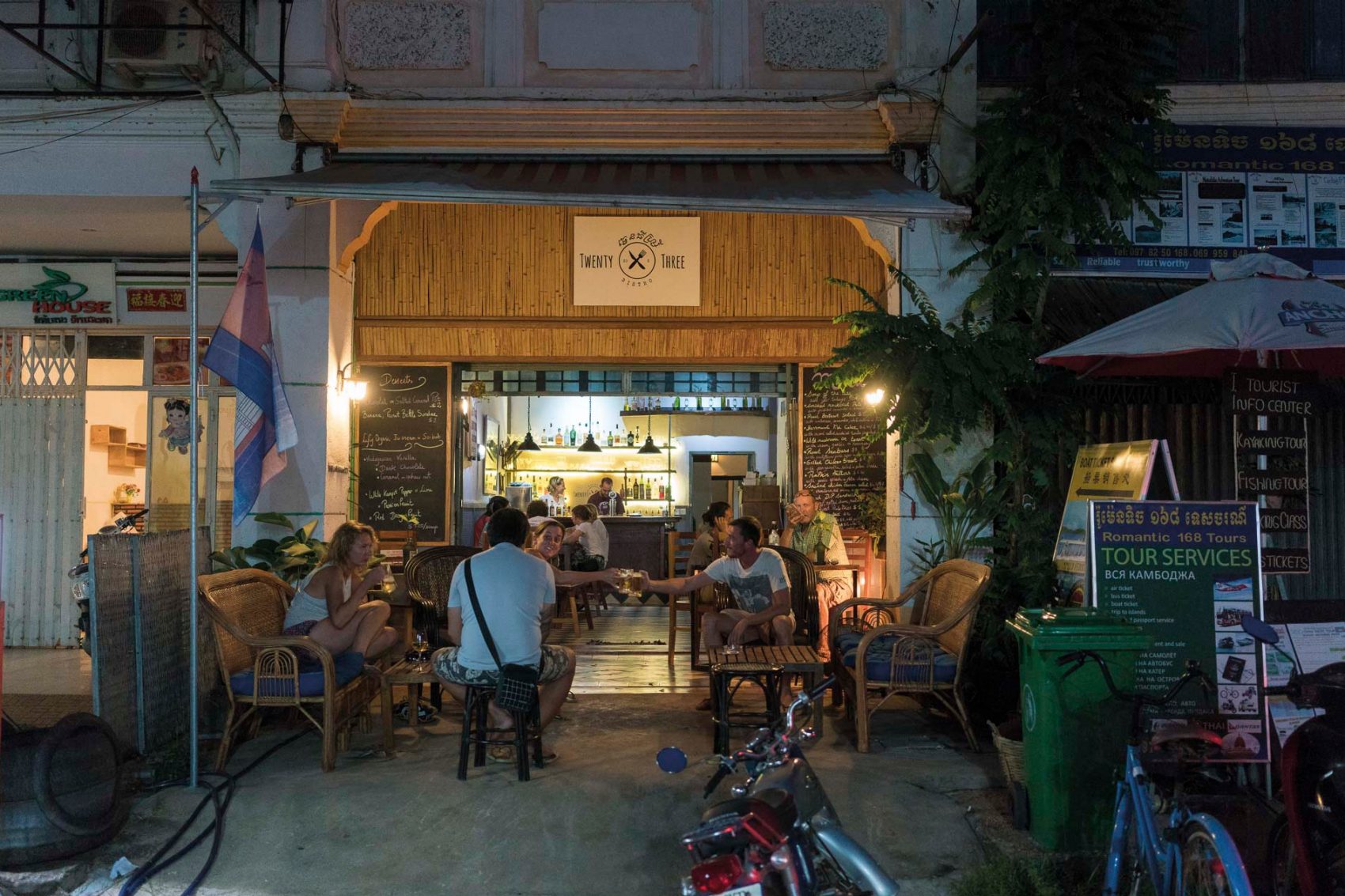
The history of Cambodia’s southern coastline, like that of much of the country, is littered with stories of boom and bust. Prior to the civil war (1967-75), the fishing town of Kampot, sitting in the shadow of Bokor Mountain, was known for its bountiful hauls of seafood. Today, the industry is more subdued, with squid boats heading out to sea at night, recognisable by their green lanterns that draw the curious cephalopods to the surface by replicating the soft glow of the moon. While it’s a fairly well-populated town, the atmosphere is still sleepy and forgotten.
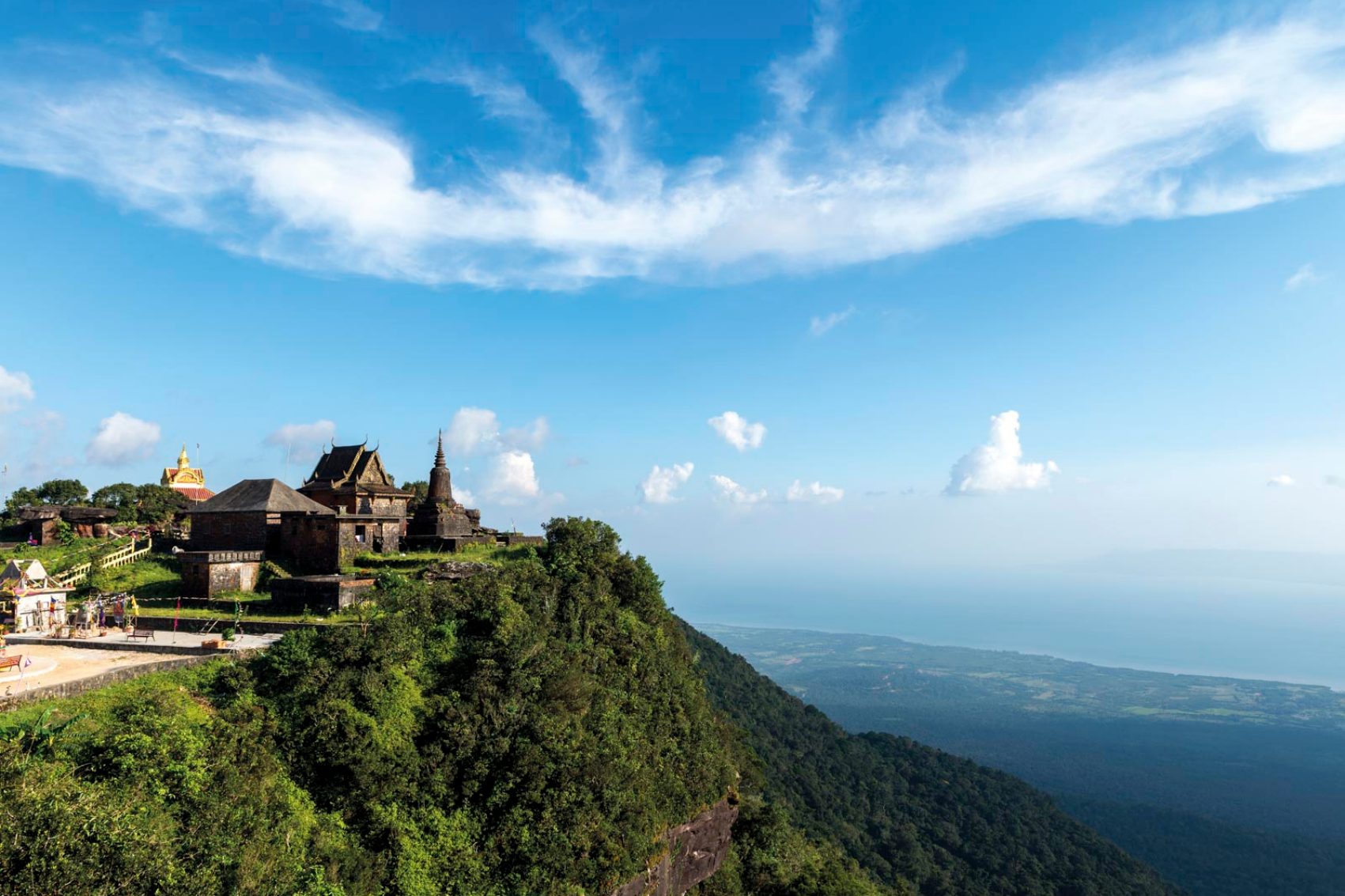
Credit: MinghaiYang / Getty Images
But Kampot, as well as nearby Kep, a coastal beach town, are increasingly reliant on adventurous travellers and Phnom Penh expats in search of the quiet life. With the growing visitors, the towns – about three hours from the capital by car – have welcomed new businesses into the historic buildings constructed by French and Chinese traders.
‘The kingdom has kilometres of beautiful coastline, but the Kep and Kampot region is the most inspiring,’ says Belgian native Jef Moons, who has lovingly restored three distinctive 1960s properties that are part of luxury boutique resort Knai Bang Chatt . Those former homes once belonged to a Kep governor, a head of the customs department and a relative of the king. ‘In the 1950s, Kep was the place King Sihanouk had his holiday retreat, and where the Phnom Penh jetset and French elite spent their weekends. Meanwhile, Kampot has the beautiful river and Bokor Mountain, as well as the Old Town area with plenty of new bars and restaurants.’
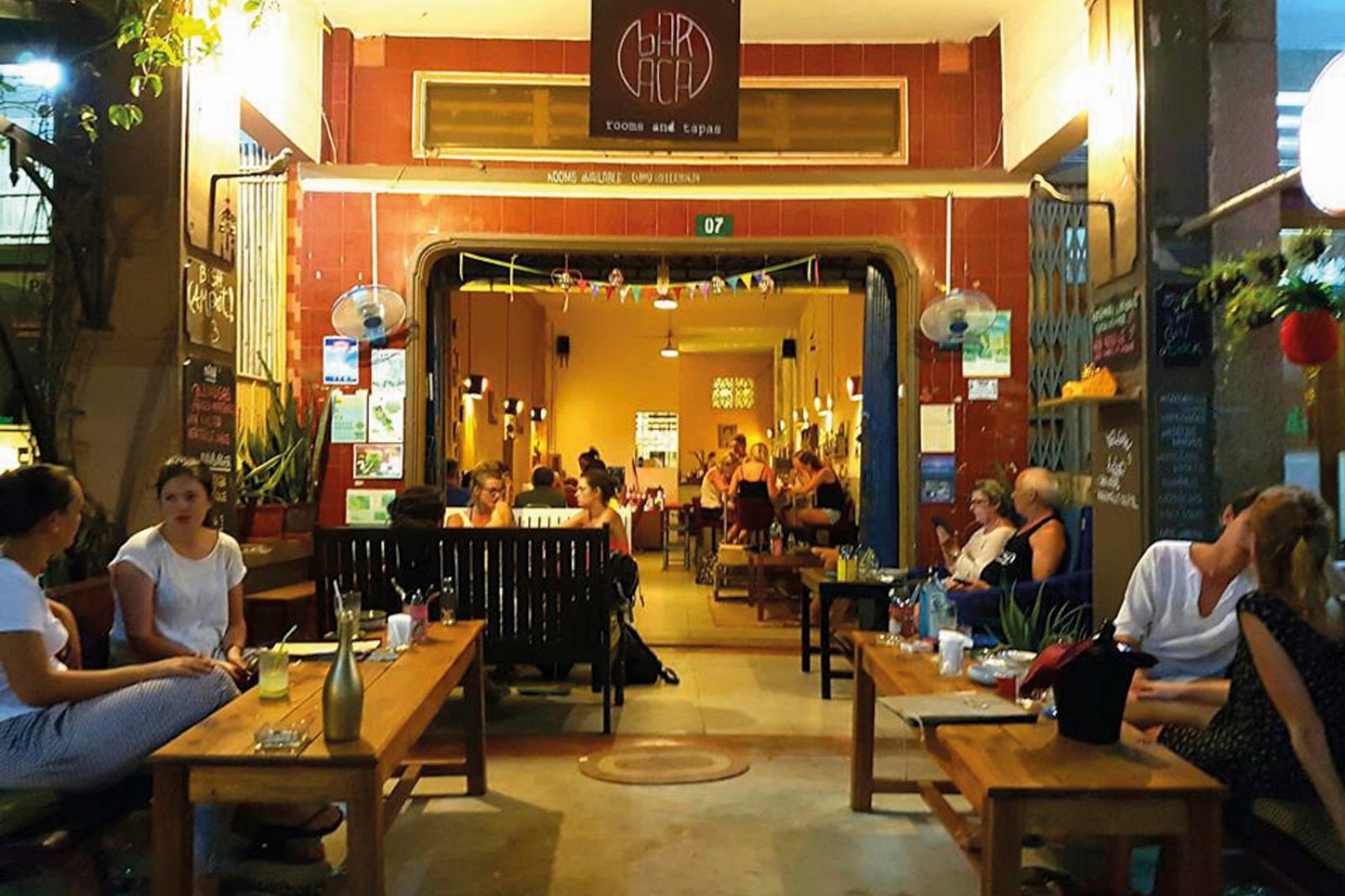
Those places include Rikitikitavi , a former rice barn converted into a riverside guesthouse and terrace restaurant with magnificent river views. Close by is tapas eatery Baraca where you can enjoy patatas bravas, mini paninis with brie and ‘holy squid’, a sumptuous bowl of fresh squid from the docks flavoured with cilantro and holy basil. Coffee addicts swear by the flat white at Australian-owned Cafe Espresso, not to mention the smashed avocado toast and poached egg breakfast, while those seeking a romantic setting for dinner head to The Fish Market, which sits in a restored 1930s art deco building and serves a menu of locally sourced seafood (try the steamed red snapper), often adorned with local pepper.

Credit: Christopher Wise

Indeed, for many, Kampot is most strongly associated with its pepper. Found in its famous fried crab dish, it benefits from the area’s soil, climate, proximity to the ocean and strong sun. ‘Chinese from Hainan island began developing pepper plantations in the region of Kampot the 13th century,’ says Nathalie Chaboche, co-owner along with her husband, Guy Porré, of La Plantation , a five-year-old organic pepper farm occupying a picturesque 20 hectares just outside of Kampot. Pepper cultivation continued throughout the French protectorate era, when the flavour-packed Kampot peppers became the spice of choice in top Parisian kitchens. ‘Kampot peppers are special, as they develop a relatively sweet, pungent taste, fruity aromas and keep flavour long in the mouth,’ says Chaboche.

Credit: Christopher Wise

Today, the couple are at the vanguard of revitalising this once prominent industry, which produces the only pepper in the world to have been given protected geographical indication status by the European Union – meaning you can’t legally call something Kampot pepper unless it was grown here. They help to spread the word by offering free guided tours of their plantation, where you can see the intriguing process from planting to harvesting. Visitors can have a tasting, go on a buffalo cart ride right into the lake, then enjoy lunch at one of the on-site restaurants, housed in several traditional Khmer homes that the couple have saved and restored.
Visitors can get from Kampot to Kep via scooter or tuk-tuk, but the Crab Shuttle offers a scenic boat journey.
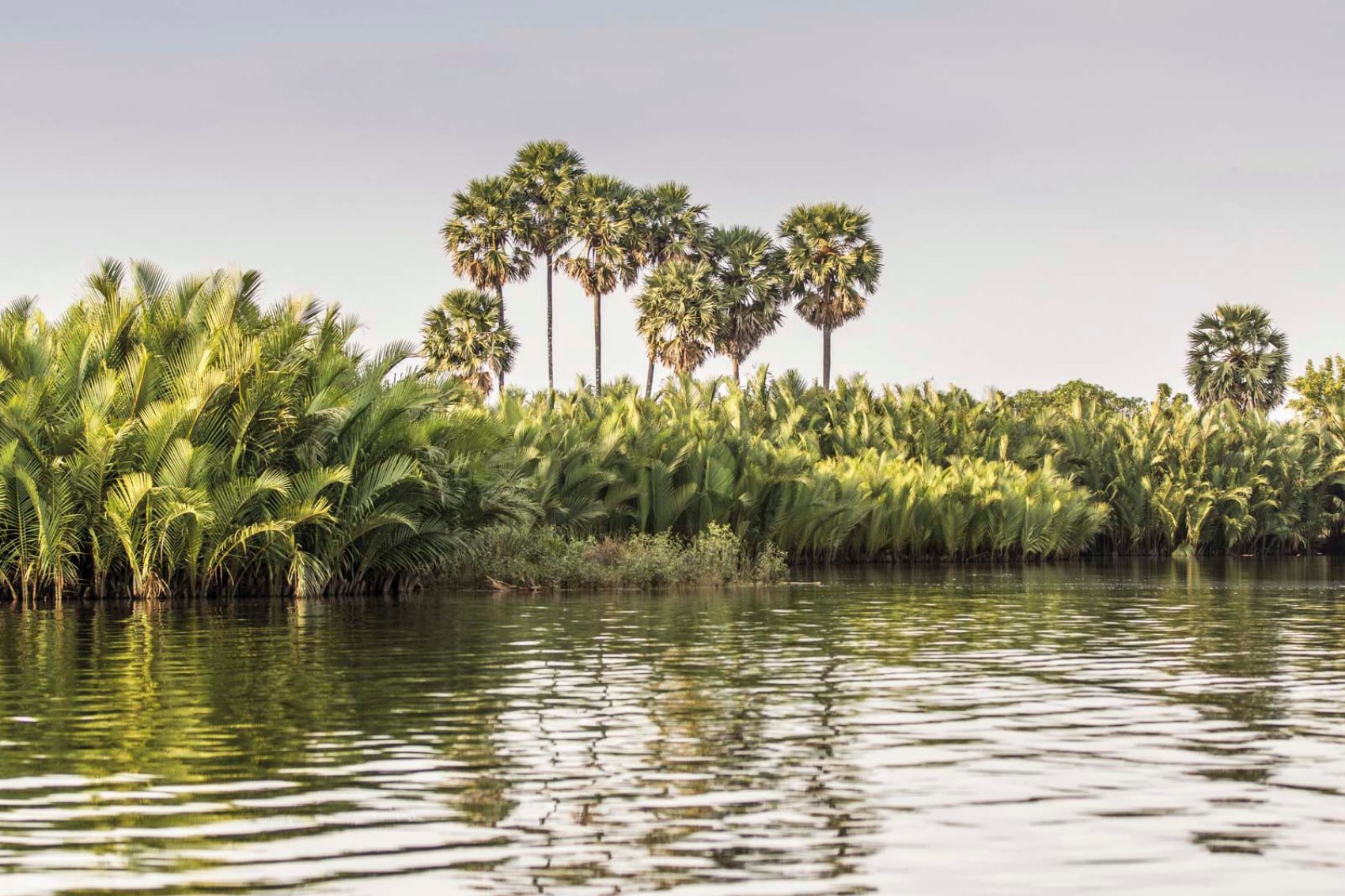
Credit: Cultura Exclusive/Gary Latham / Getty Images
The remains of Kep’s 1950s and ‘60s heyday are an assemblage of ruined modernist homes built in the distinctive style known as New Khmer, a design movement led by prominent Cambodian architect Vann Molyvann. They can be seen all over town peeking through the jungle, a reminder of a glamorous past.
Newer developments include Veranda Natural Resort , which brings the charm with its two dozen bungalows constructed of wood and stone, connected by elevated walkways. Sitting amid lush vegetation, the complex includes a restaurant and a pool. Meanwhile, seaside beachfront lounge The Waterfront Beach Club & Lounge Bar evokes a distinctly Indochine take on St. Tropez, with a superb drinks menu that includes cocktails using Phnom Penh-made rum Samai.
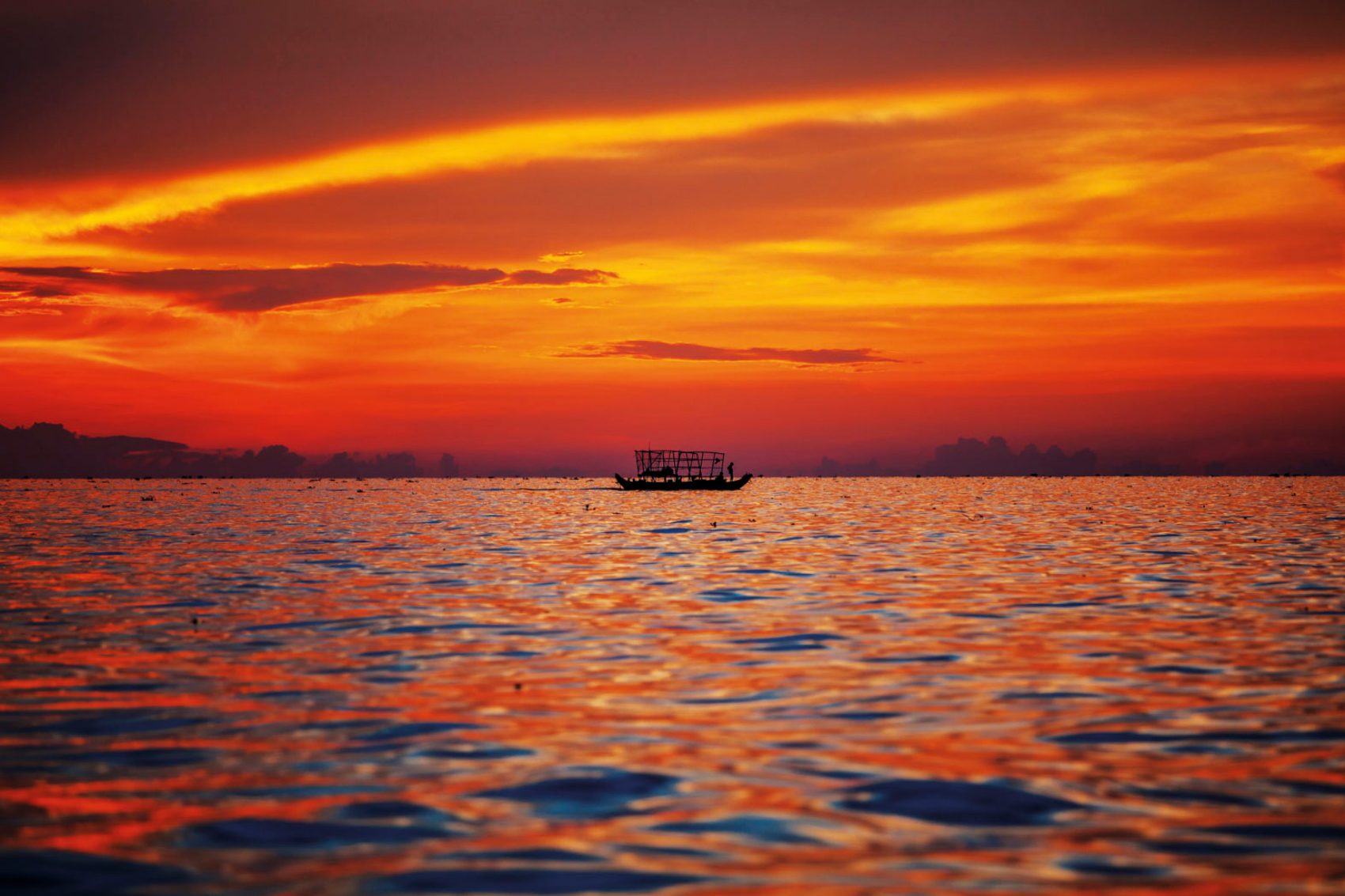
‘I wanted to create a unique space that was authentic, relaxing and cool,’ says Waterfront owner Sam Andurand. ‘I hope the attraction is the combination of what I have created to complement the natural space within which it sits. I love seeing the response of my customers when a small herd of cows wander past, or when the fishing boats go by, or watching the sunset shift in shape and colour.’
His efforts in creating something unique attract a broad range of guests, from tourists to Phnom Penh expats to day-trippers from Kampot. ‘Local residents and other business owners come here to relax, which I love.’

Credit: John W Banagan / Getty Images
Bokor Mountain looms tall over the towns, and the construction happening on it represents the eagerness to develop the area. Construction vehicles slowly traverse the newly paved road up the hill, where workers are busily renovating century-old French buildings and adding many more modern landmarks as part of an ambitious US$1 billion development project by the Cambodian Sokimex Group.
The 36-room Le Bokor Palace hotel, perched right on the edge of the plateau and with stunning ocean views, is once again welcoming guests for the first time in 40 years. The Cambodian coast’s glory days might have passed, but it seems a new era is on the horizon.
Hero image: Thomas Cristofoletti / Ruom
More inspiration
Phnom Penh travel information
- China – the Chinese Mainland, Hong Kong SAR, Macao SAR and Taiwan Region
- Hong Kong SAR - English
- Chinese Mainland (China) - English
- Taiwan China - English
- 香港特別行政區 - 繁體中文
- 中国內地 - 简体中文
- 中國台灣 - 繁體中文
- Africa
- South Africa - English
- Asia
- Bangladesh - English
- Korea - English
- Singapore - English
- Cambodia - English
- 한국 - 한국어
- Sri Lanka - English
- India - English
- Malaysia - English
- Thailand - English
- Indonesia - English
- Maldives - English
- ประเทศไทย - ภาษาไทย
- Indonesia - Bahasa Indonesia
- Myanmar - English
- Vietnam - English
- Japan - English
- Nepal - English
- Việt Nam - tiếng Việt
- 日本 - 日本語
- Philippines - English
- Australasia
- Australia - English
- New Zealand - English
- Europe
- Belgium - English
- France - Français
- Россия - Русский
- Denmark - English
- Ireland - English
- Schweiz - Deutsch
- Deutschland - Deutsch
- Italia - Italiano
- United Kingdom - English
- España - Español
- Nederland - Nederlands
- Middle East
- Bahrain - English
- Saudi Arabia - English
- United Arab Emirates and Qatar - English
- Israel - English
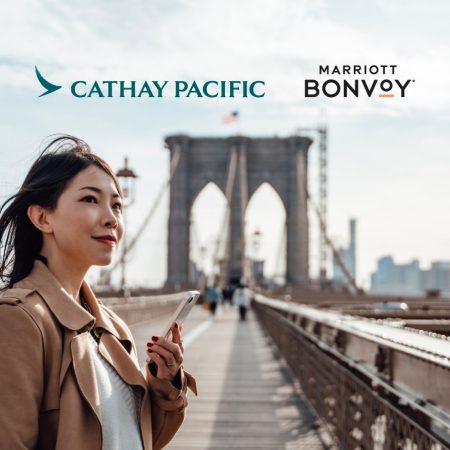
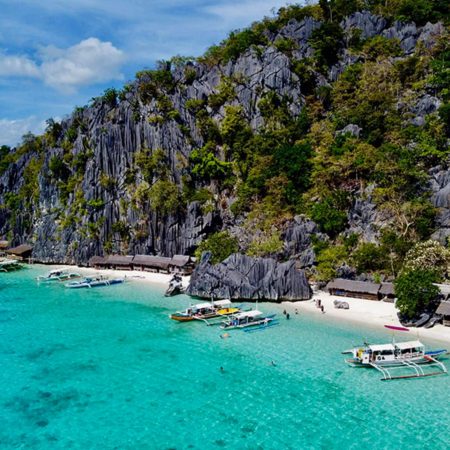


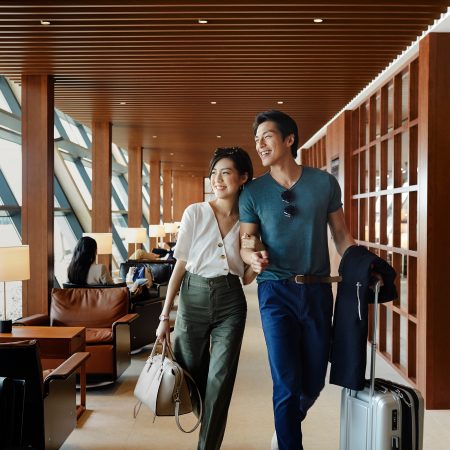
.renditionimage.450.450.jpg)

